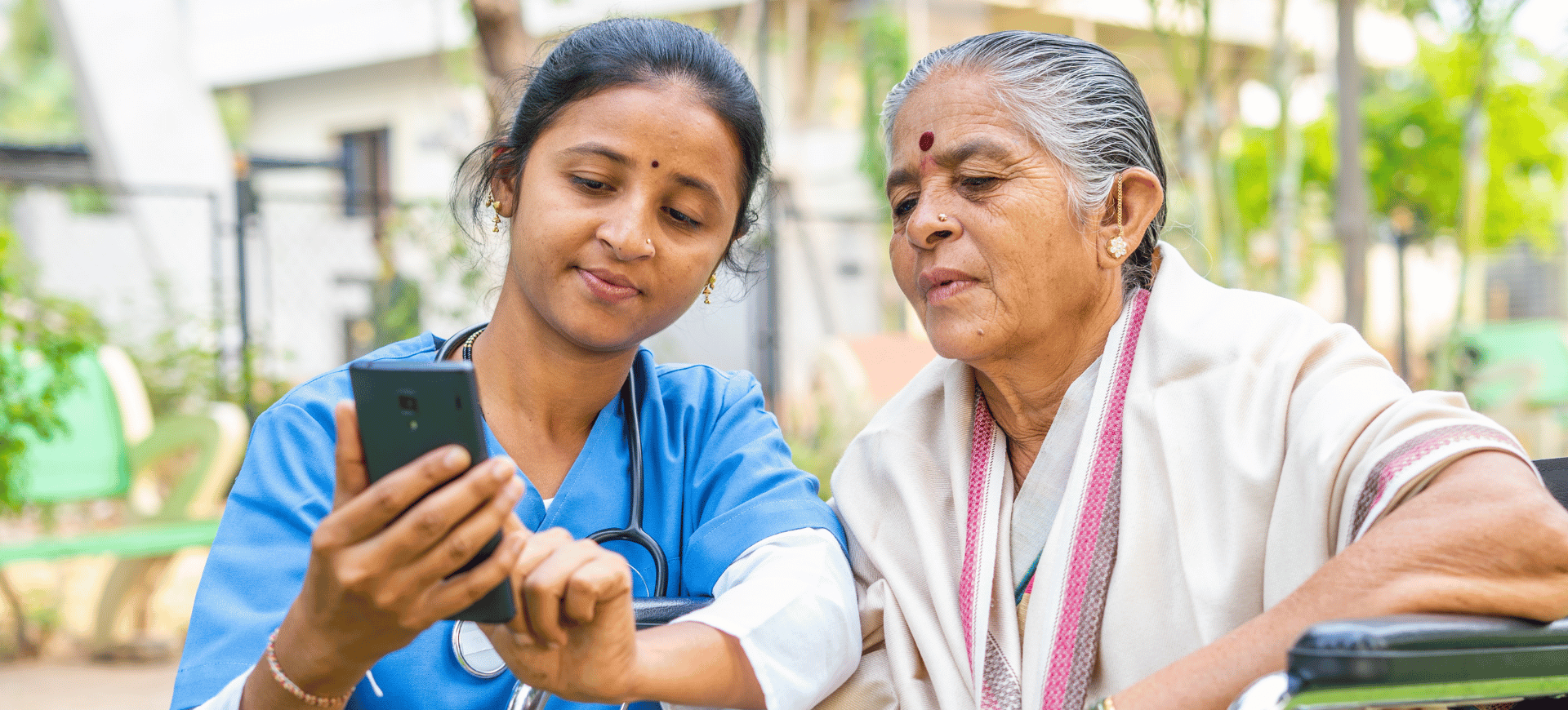Maximising AI’s transformative potential while minimising its risks
Every country implementing AI faces similar kinds of risks, but there are additional hurdles specific to emerging economies. Addressing these issues requires a multifaceted, evidence-based and sustainable approach
Healthcare systems in developing and developed countries face significant challenges in improving populations’ health, enhancing patient outcomes and delivering care at affordable cost. Communicable and non-communicable diseases, malnutrition, and ageing populations add to the rising costs. The Covid-19 pandemic has highlighted the shortages in the healthcare workforce and infrastructure and inequities in access to affordable care. In addition, the digital revolution that artificial intelligence is now catalysing has multidimensional impacts, including on health.
However, the global lack of trust and responsible frameworks for AI influences how it can transform healthcare outcomes. What are the different possibilities or opportunities AI offers to improve various systems for health care?
How can we maximise the benefits of AI while minimising its risks and avoiding its drawbacks?
Prioritising AI for health is crucial, considering its potential to fundamentally transform the practice of medicine and the delivery of health care and address global health challenges, including achieving the Sustainable Development Goals. As the technology is outpacing the regulatory and legal frameworks to govern AI for health, different actors and sectors need significant resources and participation to set the right processes and procedures for the responsible use of AI in health care.
Reactive to proactive
In India, the focus on digitalisation and AI has changed the trajectory from a reactive to a more proactive future in various domains, including health, as envisioned by the NITI Ayog in its 2018 National Strategy of Artificial Intelligence. It provided a roadmap for building digital health infrastructure and adopting AI in health and wellness centres and creating health repositories such as ‘Digital Pathology’ and the ‘Imaging Biobank for Cancer’, electronic health record standards and the ‘Healthlocker’ as a single source of national health data. It also recommended appointing the National eHealth Authority to strategise the adoption of eHealth, and an Integrated Health Information Platform to ensure interoperability.
The government of India has launched several initiatives, including the Ayushman Bharat Digital Mission, Unified Health Interface, U-WIN, eSanjeevani, Aarogya Setu, Cowin and India Stack, to accelerate the digital healthcare transformation. With the help of digital technology and AI, the National Telemedicine Service of India has provided services to over 273 million patients. AI and machine learning have been used to detect fraudulent practices within the national health insurance scheme. Health system resilience is benefiting from the use of AI in assistive technology in cancer treatment, early detection of NCDs, chatbots for mental health and well-being, and enhanced value, sales and market differentiation for pharmaceutical companies. Hospitals are also integrating AI technologies to increase the efficiency of their functioning and management, such as in decision support systems, patient flow and scheduling, allocating equipment and personalised care. AI-powered radiology tools have also enhanced and analysed X-rays, MRIs and CT scans. These developments, anchored by government, industry, start-ups and academia, in the digital public infrastructure, have also positioned India as a key player in health diplomacy by sharing its open APIs and e-governance tools with other developing countries.
Other emerging countries have also incorporated digital health and AI strategies. Brazil’s Meu Sistema Único de Saúde digital platform facilitates health information, vaccinations, test results, medications and menstruation products. South Africa has emphasised digitalisation to provide quality health care with its MomConnect programme for antenatal and postnatal care and Stock Visibility System for electronic stock management clinics and hospitals. In the Philippines, AI-powered mobile clinics enhance the early detection of tuberculosis and other respiratory diseases. With multistakeholder involvement, the digital revolution in India and other emerging countries is bridging the gaps in healthcare access, improving patient outcomes, reducing costs and making health services more resilient to crises.
Still in its nascent stage, the adoption of AI in health sectors has immense potential for strengthening diagnostics and treatment with increased accuracy and early detection, autonomation of administrative tasks resulting in reduced operational costs, personalised care and treatment, improved healthcare management, remote access to quality health care, and predictive models for outbreak detection, drug discovery and development. These applications create opportunities for improved patient outcomes, accelerate new avenues of treatment, and provide scalable solutions to support global health initiatives, multisectoral collaborations, and accountable and efficient partnerships.
Achieving balance
Despite its potential, the integration of AI in health care poses significant risks and threats, relating to data privacy, accessibility, reliability, misinformation, interoperability, regulatory challenges, cyber security and ethical issues. Emerging countries have specific hurdles, including a lack of technological infrastructure, such as electricity and access to computers, smartphones and the internet, in addition to a limited health workforce trained to use AI tools and financial constraints that can hinder the scalable use of AI-driven health technologies. From a geopolitical and geo-economic point of view, the race for AI among countries pushing the development, deployment and maintenance of AI technologies can leave emerging countries behind due to resource limitations.
Addressing the challenges of AI acceleration requires a multifaceted, balanced approach to creating a resilient healthcare system. Adopting evidence-based AI for health that ensures trust, collaboration and ethical practices must be enabled by formulating governance frameworks, facilitating investments and implementing the deployment of AI in a sustainable manner. According to the International Monetary Fund’s AI Preparedness Index there is global inequity between developed and developing countries regarding infrastructure, human capital and labour market policies, innovation and economic integration, and regulation. To address this difference in preparedness, scaling programmes for AI adoption becomes essential to promote partnerships, technology transfer, capacity building and infrastructure development. Thus, by harnessing the powers of digital transformation through AI, emerging countries can create a resilient, trusted healthcare system that is sustainable and equitable.












